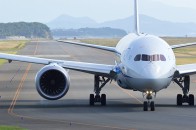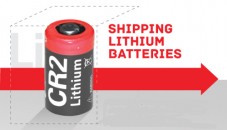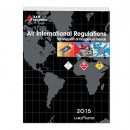Last week, I was part of the Labelmaster team that attended the Lithium Battery workshop hosted by IATA in Montreal. For those of us who’ve been following the twists and turns of the regulations governing the air transport of lithium batteries, we might be forgiven for thinking there would be nothing new to see and…
PHMSA/FAA Meet to Discuss Concerns on Lithium Battery Transport
The US Department of Transportation’s (USDOT) Pipeline and Hazardous Materials Safety Administration (PHMSA) and Federal Aviation Administration (FAA) held a joint public meeting in Washington, DC on September 18th. The principal topic of discussion was the situation regarding the transport of lithium batteries via aircraft. This past summer, many individual airlines took action to limit the…
ICAO to launch new aircraft tracking website
On September 22, 2015, the International Civil Aviation Organization (ICAO) announced the addition of a new portion of their website devoted to a centralized collection of aircraft tracking information. The new information section of ICAO’s public website was created in response to recommendations from ICAO Member States in February of this year at the High…
ICAO releases new Addendum/Corrigendum updating Technical Instructions for Dangerous Goods
The International Civil Aviation Organization (ICAO) has released a new Addendum and Corrigendum revising the 2015 – 2016 Technical Instructions for the Safe Transport of Dangerous Goods by Air, commonly referred to as the ICAO TI or simply TI. The TI are the set of regulations that, together with national regulations like the 49 CFR…
New DOT/PHMSA Interpretation Brings Some Clarity to the Lithium Ion Watts Issue
In a formal Letter of Interpretation dated August 19th, 2015 to Mr. Mike Revis USDOT/PHMSA stated categorically that a Lithium Ion Battery being shipped under the exceptions granted in 49 CFR 173.185(c) may have cells which feature watt hour ratings greater than 20 watt hours as long as the battery itself remains less than one…
Lufthansa becomes the latest airline to restrict lithium battery transport—and the strictest
Transporting lithium batteries by air continues to get more challenging. Lufthansa has just imposed restrictions that go well beyond international regulations. Here’s a breakdown of the new restrictions, effective August 31*: Complete embargo of excepted standalone lithium batteries from all aircraft. These shipments will no longer be accepted on any Lufthansa Group passenger or…
Boeing Offers Lithium Battery Air Transport Guidance
Seldom does a guidance document from a private business causes much stir in the aviation transport community when it comes to Dangerous Goods; however, that is not the case after the Boeing Company released new guidance on July 17th regarding the bulk carriage of Lithium Ion Batteries (UN3480) on its passenger aircraft. Along with European maker Airbus,…
UPS Imposes New Lithium Metal Battery Restrictions
In an action which is assuredly no April Fool’s jest, United Parcel Service (UPS) today announced new restrictions on and requirements for the transport of Lithium Metal Batteries. Effective July 1st, 2015, shipments of UN3090 Lithium Metal Batteries via UPS Airlines must receive pre-approval from UPS prior to shipment. The announcement indicates that this will…
‘Why do I need a new Air Regs book every year?’
I’m often asked: why do I need a new Air Regs book every year? Always an interesting question and the answer changes every year! For 2015 though, it’s really simple. This is an ICAO year, one in which there’s a new edition of the ICAO Technical Instructions which is worldwide legal requirements for transporting dangerous…
The Sky is NOT The Limit When Shipping DG
It’s been a busy summer for our A.I.R. ShipperTM authoring team. Rolling in the large number of changes developed by ICAO, the UN and the IAEA was a challenge made more difficult with very late changes for lithium metal batteries. In case you hadn’t heard, these will be banned aboard passenger aircraft per the ICAO Technical…





